In response to a question asked by Kevan Jones, MP for North Durham, it has been revealed that a Queen Elizabeth class aircraft carrier costs £96 million per year to operate.
Kevan Jones, MP for North Durham, asked:
“To ask the Secretary of State for Defence, what estimate his Department has made of the cost of operating each aircraft carrier each year.”
Jeremy Quin, Minister of State for the Ministry of Defence, responded explaining he would write to Jones.
“In order to ensure a full response I will write to the right. Hon Member.”
Quin later sent the following in a letter in response to Mr Jones.
“The estimated cost to the Royal Navy of a Queen Elizabeth Class Aircraft Carrier is £96M per annum.”
It is likely that the above figure is simply the cost to operate the ship with the air wing being an additional expense.
For perspective, a 1998 U.S. GAO report estimated the 50 year direct operating cost of a Nimitz class carrier at $11.7 billion, or about $234 million per year.
Background
The origins of the massive and sometimes controversial Queen Elizabeth class carrier programme lie in the 1998 Strategic Defence Review.
The review re-evaluated every weapon system (active or in procurement) with the exception of the Eurofighter Typhoon and the Vanguard-class ballistic missile submarines.
The report identified that aircraft carriers offered the following:
- Ability to operate offensive aircraft abroad when foreign basing may be denied.
- All required space and infrastructure; where foreign bases are available they are not always available early in a conflict and infrastructure is often lacking.
- A coercive and deterrent effect when deployed to a trouble spot.
The report concluded:
“The emphasis is now on increased offensive air power, and an ability to operate the largest possible range of aircraft in the widest possible range of roles. When the current carrier force reaches the end of its planned life, we plan to replace it with two larger vessels.”
You can read more by clicking here or visiting the link below.




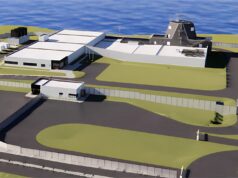
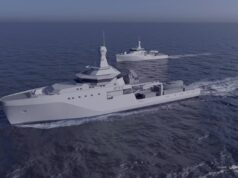
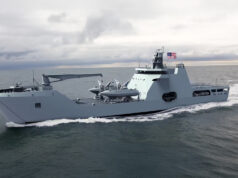
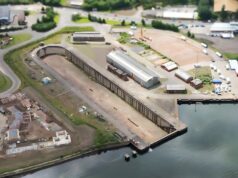
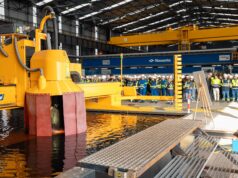
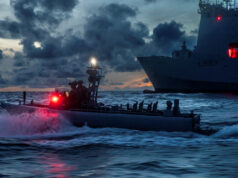

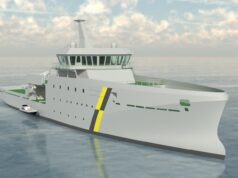
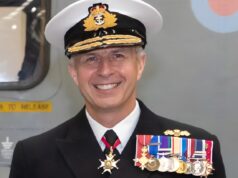
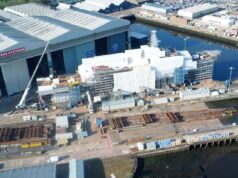

Seems like a good deal. 520,000 per day for both carriers combined.
With an operational lifespan of up to 50yrs and the uncertainty of a future Government that is wholeheartedly behind the Armed forces we will have to wait and see .Both carriers project a Britain that has something to be proud of .l for one doesn’t want to see carriers deploying without their AirArm , like one politician suggested Vanguard class deploying without Trident our future security outweighs politicians bemoaning defence spending
Why would carriers deploy without their Air Arm?
we would be lucky to have a navy with the current state of the countries youth. either anarchist or anti-government in some way.
I think enough of them grow up eventually.
I think that’s pretty much what young people are meant to be. We are all allowed challenge when young.
It’s a bargain compared to the Nimitz, supposedly 80% of the capability (sorties per day) for half the cost?
How do you get 80% of the sorties with what 16 aircraft vs 60+ strike aircraft. Not to mention the super hornets carry a bigger payload with vastly more types of weapons and can also refuel other aircraft? Not to mention the carrier has a much more capable AEW aircraft in the E-2D and has the world’s top escort jammer/SEAD aircraft in the Growler? Oh and also the CVNs are also getting a squadron of F-35Cs now. LOL
The article refers to the cost of the ship, the fact that the Airwing is incomplete doesn’t reduce the potential maximum capability.
Max load for QE-class is 36 Lightning II F-35B – https://publications.parliament.uk/pa/cm201719/cmselect/cmpubacc/394/394.pdf
“The class is estimated to be able to sustain a maximum sortie generation rate in surge conditions of up to 110 sorties per day”
https://ukdefencejournal.org.uk/queen-elizabeth-class-can-fly-72-fast-jet-sorties-per-day-aircraft-carrier-alliance-chief-engineer-discusses-vessels/
Note the article states the “£96M per annum” might NOT include that of air-wing.
As the air-wing crew size is as large as the ship side crew size, it shall simply be doubled. As air-wing consumes huuuuge amount of fuel, if fuel cost is included, it will be much more.
But, still, it looks cheap, because the US “$234 million per year” is of 1998, which is roughly $400-450M.
Thanks.
I assumed (maybe wrongly) both are on similar basis, because Airwing included would be much more.
QE has much smaller crew, so it stands to reason, it will be cheaper to operate. Also I read a USN report, that Nuclear is much more expensive, despite not needing F76.
Does the US cost include the refueling and nuclear maintenance costs over the life span of the carrier?
your talking about the current air wing, the 80% refers to what is possible with more planes
UK airwing will be 36 F-35B. USN CVW will comprise 44 strike aircraft plus 5-7 EA-18G, so not 60+ strike. Both UK and US carriers can surge more strike aircraft of course.
US dont carry 60+ or anywhere near strike aircraft for a start.
Would be interesting to know what is and is not included in the #96m. I can imagine that some ‘indirect’ operating costs are excluded. Piloting, berthing, port fees…possibly ongoing engineering / maintenance studies and planning etc. If a full like for like comparison with US CV operating costs was to be performed you would probably include (as a direct opex) a share of the cost for one of the oilers as part of the non nuclear equation. (Would there be only 1 x oiler as part of CSG21 for example rather than 2 ?)
Nonetheless fantastic value for the capability the vessels provide.
Does include the frigates and subs that protect it?
I doubt it. When we had no carriers for 10 years we still had a need for frigates and subs.
Interesting they only cost 2 or 3 times as much as a type 45. Same old story size of a ship has very little relationship to cost. Hope everyone in parliament is paying attention.
Don’t worry, they are not.
Imagine if the boys and girls on board had a decent salary.
I just had to pass on this brilliant RN fleet air arm fail….RN lands rotor in school field somewhere in the county… school children spend about 30mins all looking at rotor and taking videos pictures ect. School send out message to parents some hours later……“ the RN has asked us to ask all parents to delete any pictures taken by the children and to not share them on social media……horse stable bolted……